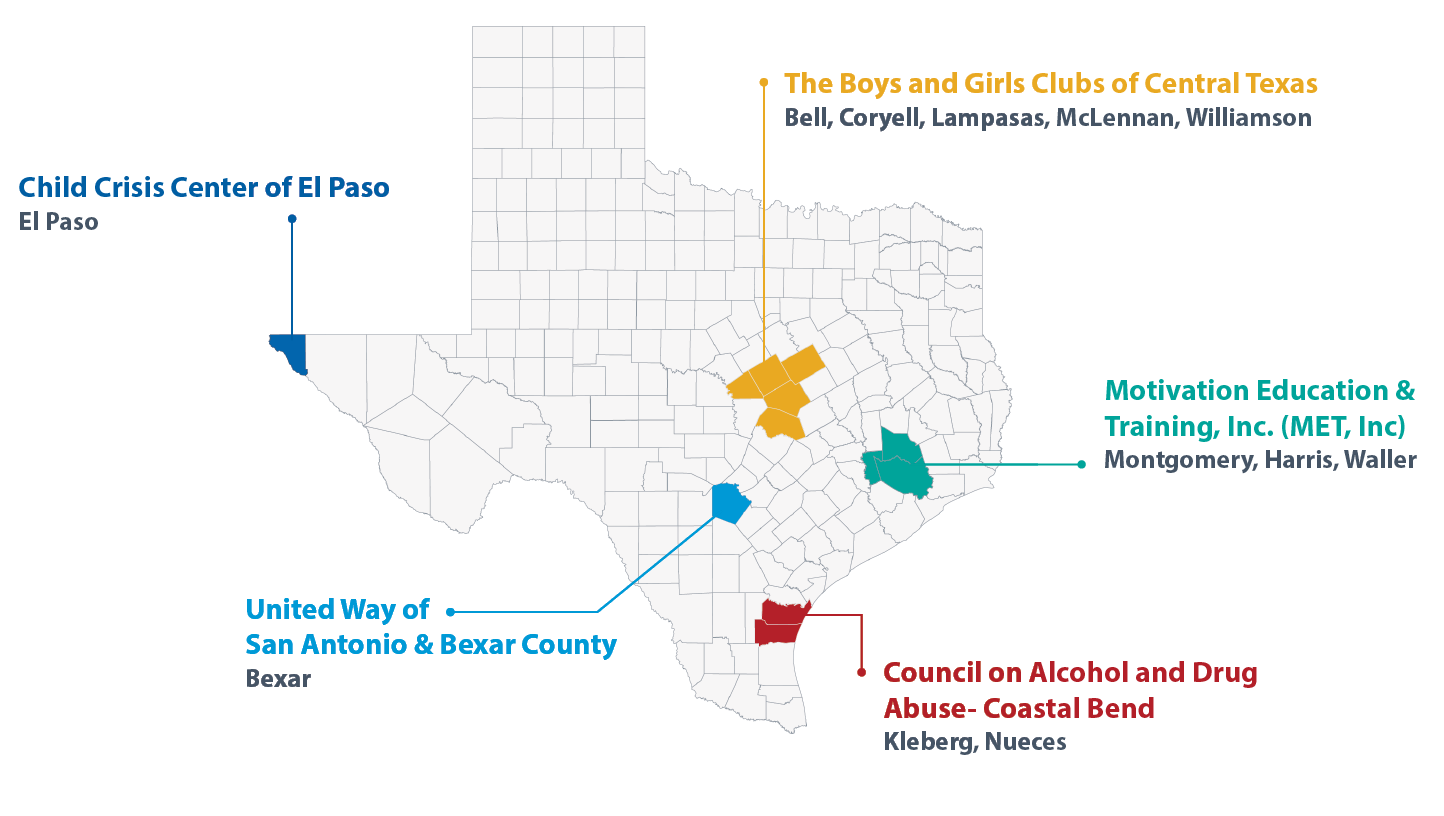
What We Do
The SMVF program provides support for families of children ages 0-17 in which one or both parents are serving, or have served, in the armed forces, reserves, or National Guard. Through supports such as parenting, education, counseling, and youth development programming this program:
- Builds on the strengths of both caregivers and children to promote strong families.
- Partners with military and veteran caregivers to support positive parental involvement in their children’s lives.
- Partners with military and veteran caregivers to maximize their ability to give their children emotional, physical and financial support.
- Builds community coalitions focused on promoting positive outcomes for children, youth and families.
Who We Serve
Military families with children ages 0-17 in which one or both parents are serving, or have served, in the armed forces, reserves, or National Guard.
Map of Providers and Communities
For additional provider details, see the 2023 provider directory.
How We Measure Success
- Children remain safe during services, within 1 year (98.0% in FY21) and 3 years (94.0% in FY21).
- Increase in protective factors, such as family functioning and resiliency, social supports, and nurturing/attachment (100% of caregivers in FY21).
Program Data
- Program Start Date: 2014
- Target Number of Youth/Families Served Annually, FY23: 1,461
- Average Number of Youth/ Families Served Per Month, FY21: 302
- Counties Served: 12
- Annual Budget for Community Contracts: $1,599,976
- Total Number of Community Grantees: 5 Grantees
- Average Grantee Budget: $319,995
SMVF Success Story
Child Crisis Center (El Paso)
In September of 2021, Grace joined her local SMFV program after hearing information about it through an outreach coordinator at an event in her community. At the time, Grace was pregnant, parenting two children, and feeling overwhelmed about her husband’s upcoming deployment. She mentioned wanting to participate in program classes to sharpen her parenting strategies. As an active duty spouse, Grace was far away from her family and friends. Through her eager participation in group classes, she was able to become part of the community of parent participants and was even able to set up a play date for her children with other group members.
When it was time to have her baby, Grace was able to access childcare through the program so that her husband was able to attend the birth of their baby. After the baby’s birth, Grace continued to attend classes until she completed the STEP curriculum, and she is planning to enroll in wraparound services through the program. Grace stated that through the SMFV program she was able to learn parenting strategies and develop a system of support to help her not feel so alone.
